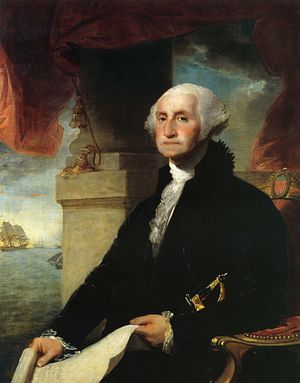It’s a good thing wars aren’t decided on “style points” the way sports increasingly seem to be. If they were, we ‘Mercans would have toasted the Queen’s health last week rather than celebrating Thanksgiving. This year, a newly formed College Football Playoff committee is choosing four contenders to compete for the national championship. Among the prospective final four, only one team, the Florida State Seminoles — for whom the Naval Diplomat rooted as a lad growing up in Northwest Florida — is undefeated, having compiled a sterling 12-0 record.
The Seminoles, though, find themselves ranked fourth in the standings after falling behind the Alabama Crimson Tide, the Oregon Ducks, and the TCU Horned Frogs, all of which have lost once. A couple of teams just behind FSU stand at 11-1 as well. And, believe you me, every one deserves that fourth playoff berth by natural right. Just ask their coaches, players, or fans.
How did the playoff committee discriminate among worthy contenders, and why is undefeated Florida State behind teams that have known the agony of defeat? Because, it seems, Alabama, Oregon, and TCU won with flair — the aforementioned style points. They also outmatched FSU in some mysterious quality known as “game control.” That seems to mean leading your opponents from the kickoff until the final whistle, and winning by a large margin over all comers. The Seminoles, by contrast, seem to beat every opponent — no matter how good, bad, or indifferent — by five points. And they often come from behind late in the game to do it. Lackluster.
One wonders what a National Combat Playoff committee would have made of the War of American Independence. Neither side covered itself with much glory during the contest. But the British Redcoats, the eventual loser, fared better on game-control grounds by, say, smashing Coach George Washington’s American Patriots on Long Island and again on Manhattan in 1776. There’s some style points for you. The Redcoats make the playoff, Washington’s Patriots get the big L! And after suffering a setback to a squad from the French Navy Mariners off the Virginia coast in 1781, the Royal Navy Mariners bounced back to crush that same French archrival in the Caribbean Sea in 1782. Style. Control.
And Washington & Co.? Few style points, no game control. Washington was lucky to escape from the debacles in New York with his team more or less intact. Unable to play in the big leagues, he resorted to unstylish strategies and tactics modeled on Coach Fabius “the Delayer,” whose chief contribution to Roman gridiron strategy was showing weak teams how to keep strong teams like those led by Carthage’s Coach Hannibal from scoring. Boooooring.
Sure, postponing defeat ad infinitum let Coach Fabius send his team to Gold’s Gym to work out, recruit new players, and prevail on the Roman Senate for cash to buy fresh uniforms and equipment. But Fabius never won the big game against Carthage. Like all unstylish coaches, he was summarily fired in favor of Coach Scipio Africanus, whose offensive play-calling was the stuff of legend.
Indeed, Scipio took the fight across the Mediterranean Sea to Carthage’s homefield, and crushed Rome’s long-time opponent in their rivalry game. Now there‘s game control for you. Scipio then renegotiated his contract for some serious coin, a new villa, and a gold-encrusted chariot for promenading through the streets of Rome.
And Washington? His Pats attacked the Redcoats in their sleep on Christmas Eve, drawing a clear foul. And he won a few scrimmages. But GW never could seem to win the big game. Critics castigated him for choking. Until the end, when he staged a surprise win at Yorktown, Virginia. The upset at Yorktown took the fight out of the British team, which conceded defeat and canceled the rest of the season after a change of management back home in London.
Silly comparison? Yes and no. In war the final result in a sequence of actions is the one that counts. A football season, by contrast, is made up of 12 discrete actions against 12 different adversaries, each theoretically as important as any other. And sure, a team should be judged by how dominant it appears against a variety of opponents. Momentum counts. Still, it’s unnerving to think of how the American Patriots would have fared had some committee been empowered to referee this republic’s destiny.
That sounds like an effort at prediction. And oddsmakers prophesying the outcomes of seesaw endeavors like sports or warfare have a spotty track record at best. In all likelihood no committee would’ve granted a farm team like the Pats the chance to compete against the mighty Redcoats. And yet GW’s team prevailed when it mattered most. Better to settle the fates of nations on the field of play.

































